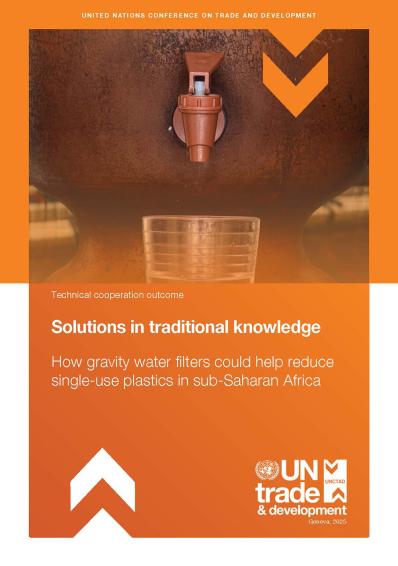
Universal access to safe and affordable drinking water continues to demand the attention of the United Nations and its member states under SDG 6. However, the construction of new water delivery infrastructure is failing to keep pace with rapid population growth, while regional impacts of climate change is making progress even more difficult.
In areas lacking reliable piped, trucked, or other forms of delivered water, the demand for bottled water has surged, creating significant environmental challenges.
This reliance on bottled water to achieve SDG 6 complicates the attainment of other goals, such as SDG 12 (Responsible Consumption and Production) and SDG 14 (Life Below Water), both of which are negatively impacted by plastic pollution.
This study examines the challenge of improving water access to meet SDG 6 (Clean Water and Sanitation), while also reducing dependence on plastic-based water delivery systems, such as those using polyethylene terephthalate (PET) bottles and low density polyethylene (LDPE) sachets.
By considering the traditional technology of ceramic gravity filters, this paper estimates plastics displacement effects that could occur if gravity filter technologies increase their participation in selected African markets.
The dual objective of meeting SDG 6 while reducing the plastics-intensity of the economy requires intersectoral action aligning efforts in the water, plastics and waste management sectors.
In the four evaluated countries combined (Ethiopia, Kenya, Uganda and Ghana), an estimated 60 million plastic bottles and sachets are used every day. This results in an annual total plastic footprint for drinking water of 105,000 tonnes, which is equivalent to an annual carbon footprint of 230,000 tonnes of CO2.
Full displacement of these SUPs would require an estimated 1.5 million ceramic water filters and could reduce the carbon footprint of water delivery by 99 per cent.
This transition would, however, require a shift in consumer behaviour away from conveniently distributed and cooled plastic-packaged water. The banning of SUPs may accelerate this transition; however, without accessible and affordable alternatives, this can delay the achievement of SDG 6 in some regions.
Recommenations:
- Appropriate water treatment technologies, such as ceramic gravity filters, should be brought to the mainstream market in sub- Saharan Africa to design waste out of the water supply system by replacing SUP bottles and sachets.
- Commercial supply chains for these products should be strengthened, with an emphasis on local production and circularity.
- Behaviour change and marketing campaigns should be conducted to reduce SUP adoption and promote water filters in their place.
Most importantly, action needs to be taken to provide potable water delivery systems with a low-plastic footprint. This requires a redesign of current water delivery systems and markets in sub-Saharan Africa giving priority to alternatives to packaged water that overcome the current trade-offs between SDG 6 (Clean Water and Sanitation) and the SDGs concerning environmental pollution, including SDG 11 Sustainable Cities and Communities; SDG 12 Sustainable Production and Consumption and SDG 14 Life Below Water.
Investing in product availability and consumer acceptance of traditional gravity-driven household ceramic water filters for potable water delivery will instantly pay off in terms of lower carbon and plastic footprint today, by 2030 and beyond.


